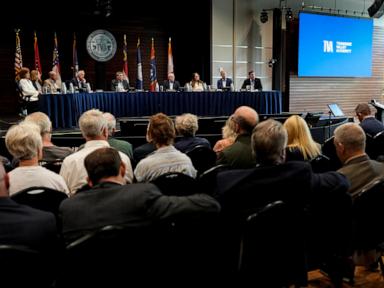"This is NPR."
Unfortunately for National Public Radio, that proved all too true this week. In one of the most cringeworthy appearances in Congress, Katherine Maher imploded in a House hearing on the public funding of the liberal radio outlet.
By the end of her series of contradictions and admissions, Maher had made the definitive case for ending public funding for NPR and state-subsidized media.
Many of us have written for years about the biased reporting at NPR. Not all of this criticism was made out of hostility toward the outlet — many honestly wanted NPR to reverse course and adopt more balanced coverage. That is why, when NPR was searching for a new CEO, I encouraged the board to hire a moderate figure without a history of political advocacy or controversy.
Instead, the board selected Katherine Maher, a former Wikipedia CEO widely criticized for her highly partisan and controversial public statements. She was the personification of advocacy journalism, even declaring that the First Amendment is the “number one challenge” that makes it “tricky” to censor or "modify" content as she would like.
Maher has supported "deplatforming" anyone she deems to be "facsists" and even suggested that she might support "punching Nazis." She also declared that "our reverence for the truth might be a distraction [in] getting things done."
As expected, the bias at NPR only got worse. The leadership even changed a longstanding rule barring journalists from joining political protests.
One editor had had enough. Uri Berliner had watched NPR become an echo chamber for the far left with a virtual purging of all conservatives and Republicans from the newsroom. Berliner noted that NPR’s Washington headquarters has 87 registered Democrats among its editors and zero Republicans.
Maher and NPR remained dismissive of such complaints. Maher attacked the award-winning Berliner for causing an “affront to the individual journalists who work incredibly hard." She called his criticism “profoundly disrespectful, hurtful, and demeaning.”
Berliner resigned, after noting how Maher's "divisive views confirm the very problems at NPR" that he had been pointing out.
For years, NPR continued along this path, but then came an election in which Republicans won both houses of Congress and the White House. The bill came due this week. Much of NPR's time to testify was exhausted with Maher's struggle to deny or defend her own past comments.
When asked about her past public statements that Trump is a "deranged, racist sociopath," she said that she would not post such views today. She similarly brushed off her statements that America is "addicted to White supremacy" and denounced the use of the words "boy and girl" as "erasing language" for non-binary people.
When asked about her past assertion that the U.S. was founded on “black plunder and white democracy,” Maher said she no longer believed what she had said. She also




.jpg)







